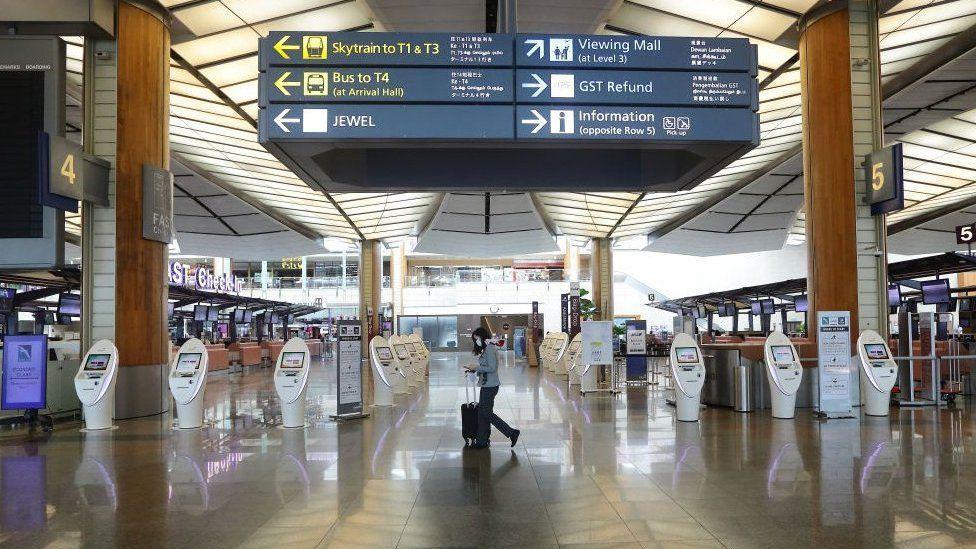Fact 1: As of 30 Jun 2017, All pre-existing NRI accounts are electronically detected and marked as “Reportable Accounts” – which means interest earned on savings, deposits and any other Indian Income like rentals, dividends, inheritance etc will all be reported to taxman in your host country as per CRS (Common Reporting Standards) Agreement. This exchange will happen on 01 Jan of every year for data collected over previous year. The data should always flow to the country where the individual is resident for tax purposes.
Fact 2: You are liable to pay tax to taxman in your host country, on your global income, as per your local income band. Consult a local charted accountant or financial adviser in your host country or find out an adviser at LocalNRIServices.com or via NRI Services/Classifieds sections of NRI Portals and Indian facebook groups mentioned at http://nriapps.com/online-indian-hubs/
——Advertisement starts here ——
 NRIForShaadi.com World’s #1 App for NRI Matrimony. Thousands of members near your GPS Location. Download from NRIApps.com
NRIForShaadi.com World’s #1 App for NRI Matrimony. Thousands of members near your GPS Location. Download from NRIApps.com ———Advertisement ends here ———
Fact 3: Most host countries are currently running schemes to declare your overseas income yourself without paying any penalty. If local taxman finds out that you have income abroad and you haven’t declared it in your local tax return then you may have to pay heavy penalties. For UK HMRC Scheme refer here https://www.gov.uk/government/publications/tell-hmrc-about-your-offshore-income-and-assets
Fact 4: Taxman in your host countries are now mining data from your social media public posts (your travels), your airBNB listings and many such activities to find out if your actual income related lifestyle matches with the income you have declared in your annual tax return or may be not. Before the taxman catches you, its better to declare your actual income. See details of such a UK HMRC data mining computer here – https://www.telegraph.co.uk/finance/personalfinance/tax/11697816/What-does-the-taxman-know-about-you-your-finances-and-your-lifestyle.html
Sharing and Reporting of accounts and income has become a hot topic among NRIs and there is a lot of confusion about whether, when, which information, why, how India will share the information with other CRS agreement member 160 Countries.
India will soon be sharing the information of financial accounts and income generated in India but owned by a resident of foreign countries (NRIs/PIOs). This blog analyzes the agreement signed by India, CBDT notification and tries to answer these questions.
Agreements signed by India
On July 9, 2015, India signed the Foreign Account Tax Compliance Act (FATCA) agreement with the USA and agreed to share the financial information of US-based Non-Resident Indians (NRIs).
On June 3, 2015, India signed the Multilateral Competent Authority Agreement (MCAA). The MCAA is based on The Common Reporting Standard (CRS), formally referred to as the Standard for Automatic Exchange of Financial Account Information in Tax Matters. It is an information standard for the automatic exchange of information (AEoI), developed by the Organisation for Economic Co-operation and Development (OECD) and G20 countries. The idea is based on the USA FATCA implementation agreements.
As of December 3, 2015, 75 countries have signed MCAA and will be sharing the data among themselves. India is using this opportunity to gather financial information for NRIs from ALL countries.
Under US – India FATCA agreement, India will report financial information from July 1, 2014; whereas under MCAA, India will exchange information on financial accounts existing in 2016 (i.e. January 1, 2016) with 160+ countries
CBDT Notification 62/2015:
On August 7, 2015, Central Board of Direct Taxes (CBDT) published rules and procedures for Reporting Financial Institutions (“RFI”) for maintaining and reporting certain financial information of NRIs.
The information to be reported and due diligence, as well as a reporting requirement, are different for different years and resident country of NRI, whether the USA or other.
The Financial Institution will first need to perform due diligence and identify whether an account is a reportable account i.e. owned by an NRI and from which country and thereafter report the financial information as requested.
Rule 114H: Due diligence requirement:
While due diligence is to be performed for NRIs from all countries, the threshold, deadline, etc. are different for NRIs from the US and non-US countries and are given in the following table:
| Particulars | US Reportable Account | Non-US Reportable Account |
| Year of Reporting | 30th June 2014 and 31st December of any subsequent year | 31st December 2015 or any subsequent year |
| High Value Account | >US $ 1million | > US $ 1 million |
| Lower Value Account | US $ 50,000 – US $ 1,000,000 | 0 – US $ 1,000,000 |
| New Account | Opened on or after July 1, 2014 | , Opened on or after January 1, 2016 |
| Pre-existing account | Account as on June 30, 2014 | Account as on December 31, 2015 |
| Review of High-Value Pre-existing account | To be completed by December 31, 2015 | , To be completed by June 30, 2016 |
| Review of Low Value Pre-existing account | To be completed by June 30, 2016 | To be completed by June 30, 2017 |
Rule 114G: Information to be reported
As per the notification, the following information will be reported to the Income-tax department.
| Rule | Particulars | 2014 (US resident NRIs only) | 2015 (US resident NRIs Only) | 2016 (All NRIs) | 2017 and beyond (All NRIs) |
| 114G(a) | Name, Address | Yes | Yes | Yes | Yes |
| 114G(a) | Taxpayer ID (country of Residence) | Yes | Yes | Yes | Yes |
| 114G(a) | Date and Place of Birth | Yes | Yes | Yes | Yes |
| 114G(c) | Account Number | Yes | Yes | Yes | Yes |
| 114G(d) | Account Balance at the calendar year end or before closure | Yes | Yes | Yes | Yes |
| 114G(e)(i) | Gross income (interest, dividend, capital gain) in custodial accounts (e.g. PIS account) | Yes | Yes | Yes | |
| 114G(e(ii) | Gross Sale proceeds or redemption in Custodial accounts | Yes | Yes | ||
| 114G(f) | Gross interest from deposit account | Yes | Yes | Yes | |
| 114G(g) | Gross amount paid/credited except in (e) and (f) accounts | Yes | Yes | Yes | |
| 114G(h) | Payment to non-participating Financial Institution | Yes | Yes |
Important Points
- Financial Information on an account owned by Not only US residents but NRI from all countries will be reported. (US Residents: from 2014; other countries: from 2016). So, NRIs from non-US countries have until December 31, 2016, to regularize/ report their Investments in India.
- Taxpayer identification number in the country of residence (US residents: Social Security Number (SSN); UK residents: National Insurance (NI); Australian Resident: Tax File Number (TFN), etc.)and place of birth are to be obtained latest by December 31, 2016.
- The financial institution may not rely on a self-certification or documentary evidence if RFI knows or have reason to know that it is incorrect or unreliable.
- If the account is jointly held, each holder is attributed ENTIRE balance for applying aggregation requirement.
- The Financial Institution will aggregate all financial accounts maintained by it or by a related entity that can be linked with a computerized system with the unique number such as PAN or Customer ID. (RBI has already implemented unique customer ID code).
- All accounts – Savings, Current, Cash Credit/Overdraft, FD/ Term Deposits; Term, Endowment, Annuity, ULIP, Money Back, or Whole Life Insurance Policies; PIS, demat or trading accounts, Mutual Fund investments; Beneficiary or Clearing Member Account or other account are covered and will be reported.
- The required information of the accounts will be submitted online with data structure under the digital signature and reported to the Director or Jt. Dir. of Income Tax (Intelligence and Criminal Investigation).
- If there is no reportable account, a NIL report is also required to be submitted.
What this all means to an NRI
As a result of this notification, the KYC (Know Your Client/Customer) requirements have been made stringent. From November 1, 2015, ALL NEW FINANCIAL ACCOUNTS require FATCA/CRS declaration. All fresh investments or switches in the existing FOLIO require FATCA/CRS declaration.
NRIs have been contacted by the banks, mutual funds, demat participants, brokers, insurance companies and other financial Institutions to provide the FATCA/CRS declaration and financial institutions are updating their records accordingly.
NRIs holding accounts as residents:
For opening any new account, FATCA/CRS declaration would be required.
It is expected that all Indian banks and financial institutions will also require submission of FATCA/CRS declarations from RESIDENT INDIANS & NRIs as a part of change in KYC requirement. Unless the FATCA/CRS declaration is submitted, the financial institution will not entertain any request (e.g. change address, add/delete joint holder, add POA, etc.).
In short, BEFORE December 2016, a FATCA/CRS declaration will be obtained for ALL accounts – owned by Residents or Non-Residents. In CRS declaration you have to mandatory inform if you are tax resident in one ore more countries. Also optionally you have to provide your local TAX Identification Number of those countries in that form.
HOW does CRS Reporting Work?
- Preexisting individual lower value accounts
A Lower Value Account for CRS purposes is an individual account with an aggregate balance or value that does not exceed $1 million as of 29 February 2016. It will remain a lower value account as long as the balance or value does not exceed $1 million last day of February 2017 and last day of February of subsequent years. An RFI can apply either a residence address test or an electronic record search.
- Residence address test: The current residence address for these purposes is the residential address recorded by the RFI for the Account Holder. A residential address is one where the RFI understands or presumes the account holder resides. A ‘care of’ or post office box address would not generally be presumed to be the residential address (except in special circumstances such as that of military personnel). The current residence address must be substantiated by evidence, such as:
- Documentary Evidence, i.e. the evidence specified in Section VIII(E)(6) of the CRS Regulations Broadly, it covers certain documents issued by an authorised government body, an audited financial statement, third party credit report, bankruptcy filing or securities regulator’s report
- Supporting documentation, such as a document issued by an authorised government body or a utility company
- General documentation, i.e. any of the above, and any other government or formal commercial document such as, for example, a trust deed or company certificate.
- Electronic records search: Where an RFI is unable to establish the residence of an individual with a Lower Value Account with the residence address test, or chooses not to apply the residence address test, it must review its electronically searchable data for indicia of the individual’s residence. The account holder is regarded as a resident of a foreign jurisdiction if any of the following foreign indicia is found:
- The account holder is identified as resident of a foreign jurisdiction or as a US citizen
- A current mailing or residence address (including a post office box) of the account holder is in a foreign jurisdiction
- There are one or more current telephone numbers in a foreign jurisdiction and no telephone number for the account holder in South Africa
- For non-depository accounts only, that there are current standing instructions to transfer funds to an account maintained in a foreign jurisdiction
- There is a currently effective power of attorney or signatory authority granted to a person with an address in a foreign jurisdiction
- An ‘in-care-of’ address or ‘hold mail’ instruction in a foreign jurisdiction if the RFI does not have any other address on file for the account holder.
If none of these indicia are discovered through an electronic search, no further action is required for lower value accounts unless and until there is a subsequent change of circumstance that results in one or more of these indicia being associated with the account or the account holder, or the account becomes a high value account. Where any of the first four indicia are found or subsequently arise the account becomes a reportable account unless the RFI takes action that leads to the indicia being cured. The RFI may (but is not required to) cure the indicia by obtaining both:
- A self-certification (if not already obtained); and
- Documentary Evidence supporting the self-certification to establish the account holder’s non-reportable status.
In the case where the only indicium is item 6 above (an ‘in-care-of’ address or ‘hold mail’ instruction in a foreign jurisdiction and no other address on file for the Account Holder), the RFI is required to undertake at least one of these actions:
- Conduct a paper record search of certain documents specified in the CRS; or
- Seek a self-certification or documentary evidence from the account holder to establish their tax residency.
If the paper record search action is chosen and further foreign indicia are found, the account is a reportable account unless the RFI takes the appropriate curing action for the indicia. If the paper record search finds an South African address and no other foreign indicia are found, the account is not a Reportable Account. For any of these curing procedures in which Documentary Evidence is obtained, the evidence will be sufficient to confirm non-reportable status for CRS purposes (but not FATCA) if it contains a current South African residential address.
If the chosen course of action fails to resolve the status of the account the RFI is required to attempt the other course of action. If neither course of action is successful in resolving the status of the account, the RFI must report the account as an undocumented account. If foreign residence indicia were found and not remediated (“cured”) under the options available, the account is a Reportable Account for the indicated jurisdiction(s). The RFI maintaining the account must make reasonable efforts to obtain the account holder’s date of birth and Taxpayer Identification Number (TIN) if these are not already held.
An RFI must monitor the balance of lower value pre-existing individual accounts on the last day of February of each year from 2017. On the first occasion the balance exceeds $1 million, the account becomes a high value account and the RFI must carry out the enhanced review procedures for High Value accounts in the next calendar year.



